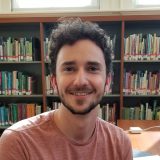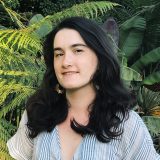Camden Burd holds a Ph.D. in History from the University of Rochester.
During his time at the New York Botanical Garden he will be working on his manuscript, tentatively titled Planting an Empire: Nurserymen and the Making of the American Landscape. Broadly speaking, Camden’s research explores the interaction of nature, business, and culture in nineteenth-century America through an examination of plant nurserymen. In addition to their role as distributors of plant material, nurserymen were naturalists, city planners, reformers, scientists, and businessmen. Their vision for the American landscape blended agribusiness with a deep reverence for horticultural beauty. In addition to a close reading of nurserymen’s letters, publications, and plant catalogues, Camden utilizes big-data and geographic information systems to track and visualize the environmental transformation of America by placing the profession at the center of continental expansion and ecological imperialism.







